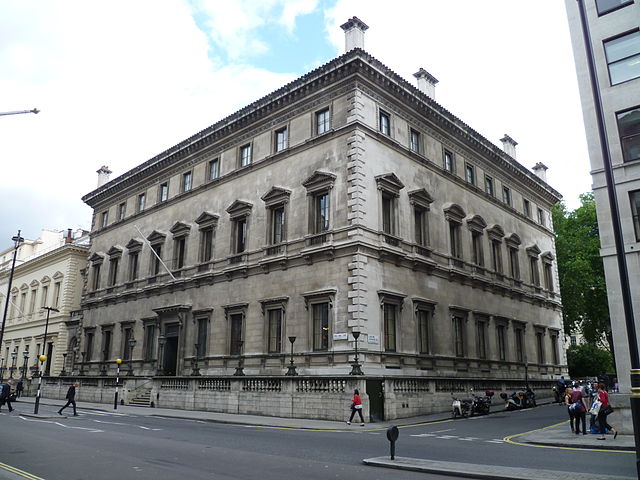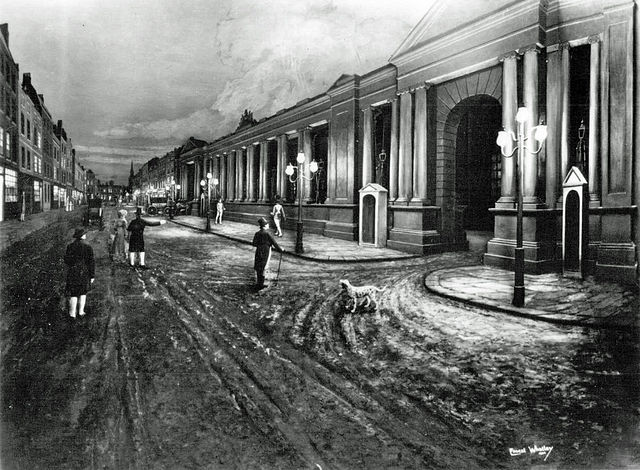The Reform Club is a private members' club, owned and controlled by its members, on the south side of Pall Mall in central London, England. As with all of London's original gentlemen's clubs, it had an all-male membership for decades, but it was one of the first all-male clubs to change its rules to include the admission of women on equal terms in 1981. Since its foundation in 1836, the Reform Club has been the traditional home for those committed to progressive political ideas, with its membership initially consisting of Radicals and Whigs. However, it is no longer associated with any particular political party, and it now serves a purely social function.
The Reform Club viewed from Pall Mall, adjacent to the Travellers Club
This 1840s drawing depicts the Gallery above the club's Saloon at first floor level.
The Reform Club's italianate Saloon (stairs leading to the Gallery)
Pall Mall is a street in the St James's area of the City of Westminster, Central London. It connects St James's Street to Trafalgar Square and is a section of the regional A4 road. The street's name is derived from pall-mall, a ball game played there during the 17th century, which in turn is derived from the Italian pallamaglio, literally "ball-mallet".
Pall Mall in 2009
A View of St James's Palace, Pall Mall etc by Thomas Bowles, published 1763. This view looks east. The gatehouse of St James's Palace is on the right.
George Dance the Younger's Shakespeare Gallery at 52 Pall Mall was built in 1788 and demolished 1868–1869. It is shown in 1851 after its purchase by the British Institution.
Pall Mall was one of the first streets in London to have gas lighting.







